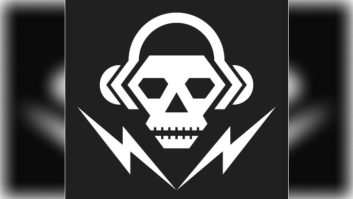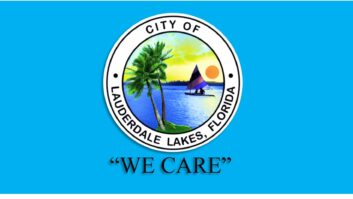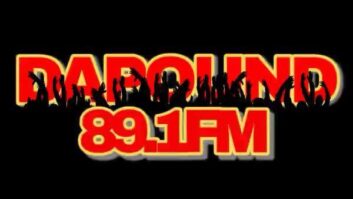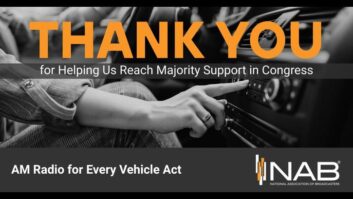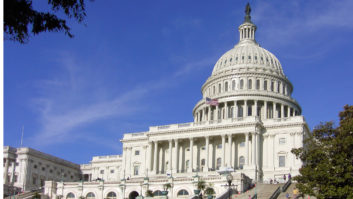Lawmakers are attempting to give the PIRATE Act a new lease on life.
Reps. Paul Tonko (D-N.Y.) and Gus Bilirakis (R-Fla.) reintroduced the PIRATE Act (H.R. 583) in an effort to target pirate radio operators by upping fines and giving the Federal Communications Commission more enforcement authority.
The act (short for Pirate Illegal Radio Abuse Through Enforcement Act) was unanimously passed by the U.S. House of Representatives in July 2018, when it was then referred to the Senate Committee on Commerce, Science and Transportation. No action was taken during that session of Congress.
[Read: Collaboration Between FCC and DA Office Leads to Arrest of Alleged Pirate Operator]
The proposal just introduced in this 116th Congress contains the same language as the earlier legislation: The act proposes to hike fines for violations up to $100,000 per day (up from the current maximum daily penalty of about $19,200) and would give the government the authority to impose a maximum penalty of $2 million for illegal radio broadcasters.
Other provisions include creation of a yearly report by the FCC summarizing the implementation of the legislation and related enforcement activities; the introduction of annual sweeps of the top five radio markets experiencing pirate radio activity; and giving the FCC the authority to skip the warning known as a Notice of Unlicensed Operation — generally the first step when confronting an alleged pirate — and go straight to issuing a Notice of Apparent Liability.
The legislation also calls for creating a publicly accessible online database that lists all U.S. stations as well as all entities that have received notice that they are operating a broadcast radio station without authority.
“Protecting our public airwaves is critical for preserving community safety, whether for first responders or for working parents who don’t want to expose their children to uncontrolled hate and obscenity,” said Rep. Tonko. “…Our communities are better served when broadcasting is governed by the rule of law.”
The National Association of Broadcasters praised the reintroduction of the act, which
strengthens the FCC’s enforcement tools to combat illegal pirate radio operations, said NAB Executive Vice President of Communications Dennis Wharton.
“Unlicensed radio stations are not merely a nuisance to legitimate radio broadcasters who play by the rules. They also pose a threat to public safety by disrupting communications between air traffic controllers and airline pilots,” he said.
The FCC continues to press on to combat pirate activity. Most recently the commission corroborated with the district attorney’s office in Westchester County, N.Y. to investigate and arrest a radio operator allegedly broadcasting on 98.5 FM in Croton-On-Hudson.
